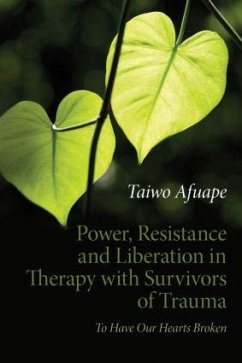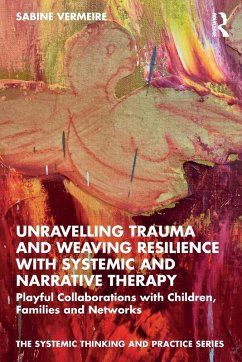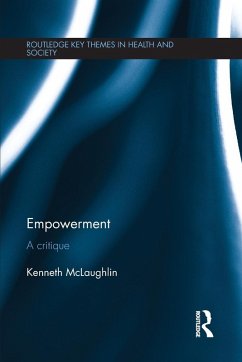
Liberation Practices
Towards Emotional Wellbeing Through Dialogue
Herausgegeben: Afuape, Taiwo; Hughes, Gillian
Versandkostenfrei!
Versandfertig in 6-10 Tagen
47,99 €
inkl. MwSt.
Weitere Ausgaben:

PAYBACK Punkte
24 °P sammeln!
Liberation psychology is an approach that aims to understand wellbeing within the context of relationships of power and oppression, and the sociopolitical structure in which these relationships exist. Liberation Practices: Towards Emotional Wellbeing Through Dialogue explores how wellbeing can be enhanced through dialogue which challenges oppressive social, relational and cultural conditions and which can lead to individual and collective liberation.Taiwo Afuape and Gillian Hughes have brought together a variety of contributors, from a range of mental health professions and related disciplines...
Liberation psychology is an approach that aims to understand wellbeing within the context of relationships of power and oppression, and the sociopolitical structure in which these relationships exist. Liberation Practices: Towards Emotional Wellbeing Through Dialogue explores how wellbeing can be enhanced through dialogue which challenges oppressive social, relational and cultural conditions and which can lead to individual and collective liberation.
Taiwo Afuape and Gillian Hughes have brought together a variety of contributors, from a range of mental health professions and related disciplines, working in different settings, with diverse client groups. Liberation Practices is a product of multiple dialogues about liberation practices, and how this connects to personal and professional life experience. Contributors offer an overview of liberation theories and approaches, and through dialogue they examine liberatory practices to enhance emotional wellbeing, drawing on examples from a range of creative and innovative projects in the UK and USA.
This book clearly outlines what liberation practices might look like, in the context of the historical development of liberation theory, and the current political and cultural context of working in the mental health and psychology field. Liberation Practices will have a broad readership, spanning clinical psychology, psychotherapy and social work.
Taiwo Afuape and Gillian Hughes have brought together a variety of contributors, from a range of mental health professions and related disciplines, working in different settings, with diverse client groups. Liberation Practices is a product of multiple dialogues about liberation practices, and how this connects to personal and professional life experience. Contributors offer an overview of liberation theories and approaches, and through dialogue they examine liberatory practices to enhance emotional wellbeing, drawing on examples from a range of creative and innovative projects in the UK and USA.
This book clearly outlines what liberation practices might look like, in the context of the historical development of liberation theory, and the current political and cultural context of working in the mental health and psychology field. Liberation Practices will have a broad readership, spanning clinical psychology, psychotherapy and social work.














